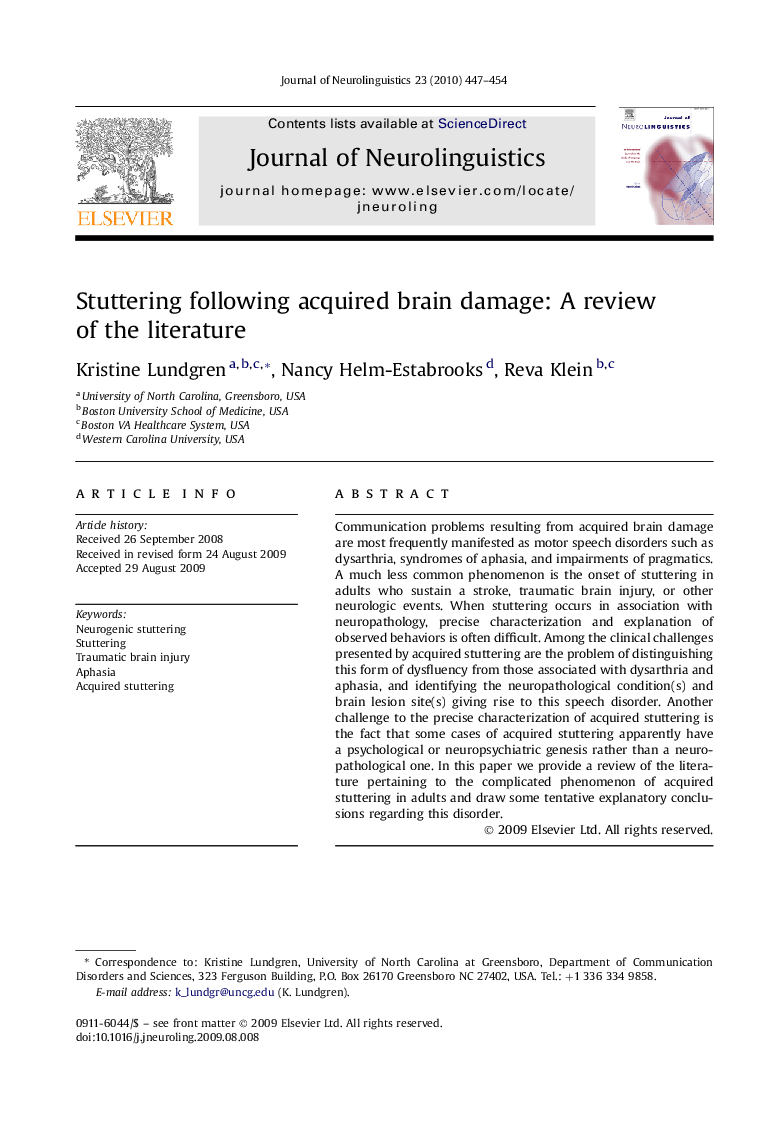| Article ID | Journal | Published Year | Pages | File Type |
|---|---|---|---|---|
| 912016 | Journal of Neurolinguistics | 2010 | 8 Pages |
Communication problems resulting from acquired brain damage are most frequently manifested as motor speech disorders such as dysarthria, syndromes of aphasia, and impairments of pragmatics. A much less common phenomenon is the onset of stuttering in adults who sustain a stroke, traumatic brain injury, or other neurologic events. When stuttering occurs in association with neuropathology, precise characterization and explanation of observed behaviors is often difficult. Among the clinical challenges presented by acquired stuttering are the problem of distinguishing this form of dysfluency from those associated with dysarthria and aphasia, and identifying the neuropathological condition(s) and brain lesion site(s) giving rise to this speech disorder. Another challenge to the precise characterization of acquired stuttering is the fact that some cases of acquired stuttering apparently have a psychological or neuropsychiatric genesis rather than a neuropathological one. In this paper we provide a review of the literature pertaining to the complicated phenomenon of acquired stuttering in adults and draw some tentative explanatory conclusions regarding this disorder.
